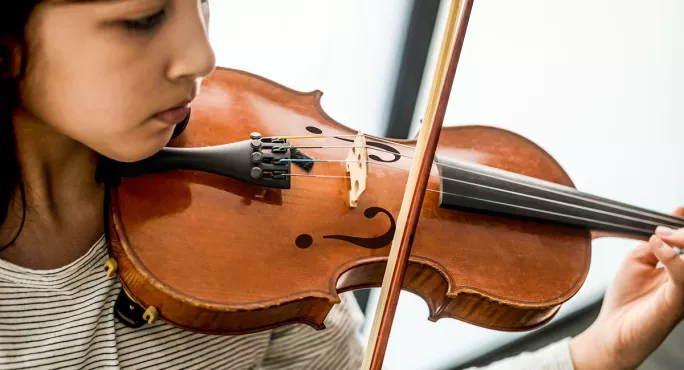Show how music is ‘adequately funded’, Walker asks DfE

The Department for Education has been asked to detail the evidence underpinning music hubs reforms and set out what steps the government is taking “to ensure that music education is adequately funded”.
Robin Walker, chair of the Commons Education Select Committee, has written to schools minister Damian Hinds after experts last week appeared before the committee to discuss the reforms.
His letter comes as music specialists have written separately to the schools minister “to correct some misleading assertions” made during the session, a letter seen by Tes reveals.
Mr Walker’s letter to Mr Hinds says that MPs heard last week that “hubs are increasingly having to reduce staff numbers and rely on higher parent fees to maintain provision”.
It says: “Please could you set out the steps you are taking to ensure that music education is adequately funded and that funding increases in line with inflation?”
Insufficient funding
One music hub manager said during the session that the “aspirations of the national plan are fantastic”, but that the funding “isn’t sufficient”.
Mr Walker also called for the department to consider increasing flexibility on how a £25 million grant for purchasing instruments and equipment can be used “to ensure that it is as useful as possible”.
Witnesses appearing before the committee last week said that the conditions placed on the grant were “unsustainable”.
The former schools minister’s letter also asks Mr Hinds to set out the steps the department will take to support all music hubs “with the increased cost of employer contributions to the Teachers’ Pension Scheme”.
- Music hubs: Experts sound warning over cut in numbers
- National plan: Subject experts cast doubt over national music education plan
- Music hubs: ‘No evidence’ of music hubs underperforming
On the reduction of music hub numbers, Mr Walker said that the committee had heard that while the reduction of music hubs “is likely to bring some benefits”, there “is a lack of clear evidence or rationale underpinning the reforms”.
His letter says: “Please could you set out in more detail the evidence underpinning the reforms, their likely benefits, and what steps you will take to increase flexibility as to the expected start date for new hubs?”
The hearing held by the committee last week was part of a one-off session to investigate the difficulties facing the music education sector. The session follows a restructuring of music hubs, which is set to reduce the number from 116 to 43 from September this year.
Music specialists previously criticised the restructuring, with the Independent Society of Musicians (ISM) last year calling for former schools minister Nick Gibb to provide answers on the plan to cut the number of hubs.
DfE accused of ‘misleading statements’
In a separate letter to Mr Hinds sent after last week’s hearing, ISM chief executive Deborah Annetts said some statements made by Mr Hinds and DfE director for curriculum and qualifications Jenny Oldroyd during the session had been “misleading”.
When asked about the restructure consultation process, which proposed three different models for music hubs, Ms Oldroyd said the hub lead organisations “very much preferred keeping the current geographies” but that “some of the organisations that aren’t involved directly with hubs but work with them preferred regional models”.
However, Ms Annetts said this was misleading as the summary of findings showed that “the only group of respondents who preferred the ‘regional’ model...were those not currently associated with or engaged with any hub”.
She also said there was “no evidence” to support Mr Hinds’ claim that an ambition for every school to teach music for one hour a week was being delivered at “about that level on average” at key stage 3.
No ‘clear answers’
The DfE was “unable to provide clear answers on how the reduction in hub numbers will benefit music education”, the letter adds.
And references to “economies of scale”, such as opportunities for professional development, were an “extremely weak argument for such a radical restructure”, it states.
It criticises the DfE for its promise that the department would undertake work to understand the financial pressures faced by hubs, saying it should “already have this data”.
Overall, the letter says the DfE’s evidence “failed to answer the many questions that remain about why such a wholesale restructure of music hubs was necessary, how it will benefit the delivery of music education or whether the DfE will provide the additional financial support that music hubs so urgently need”.
The DfE has been contacted for comment.
For the latest education news and analysis delivered directly to your inbox every weekday morning, sign up to the Tes Daily newsletter
You need a Tes subscription to read this article
Subscribe now to read this article and get other subscriber-only content:
- Unlimited access to all Tes magazine content
- Exclusive subscriber-only stories
- Award-winning email newsletters
Already a subscriber? Log in
You need a subscription to read this article
Subscribe now to read this article and get other subscriber-only content, including:
- Unlimited access to all Tes magazine content
- Exclusive subscriber-only stories
- Award-winning email newsletters
topics in this article



